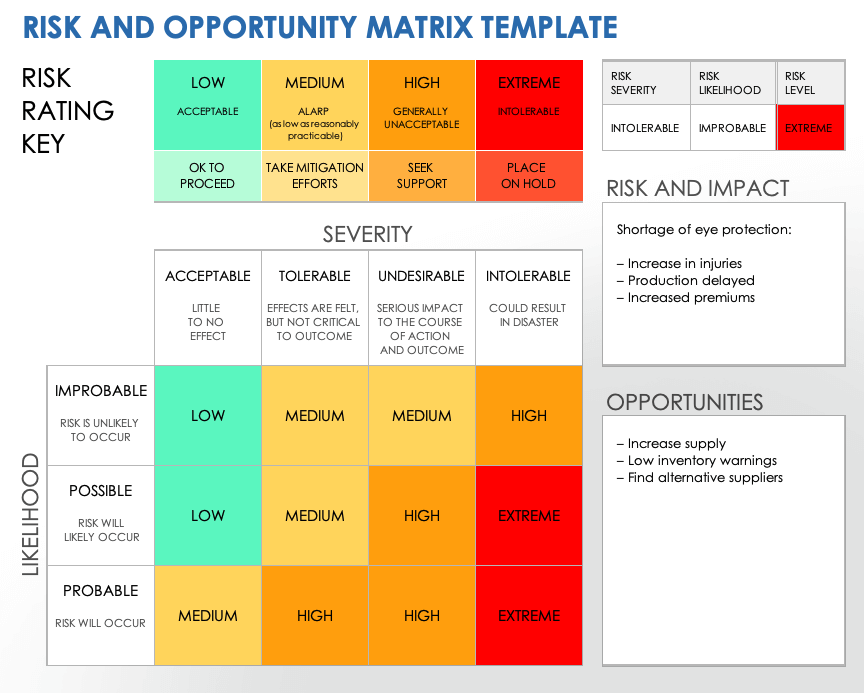The Importance Of Middle Managers: Benefits For Companies And Staff

Table of Contents
Enhanced Communication and Collaboration
Middle managers act as a critical bridge between upper management and frontline staff. They translate complex strategic goals into actionable plans, ensuring clear communication flows in both directions. This two-way communication stream is vital for organizational success.
- Improved information flow: Middle managers ensure that information reaches all levels efficiently, preventing misunderstandings and delays.
- Reduced misunderstandings: By clarifying expectations and providing context, they minimize confusion and conflict.
- Faster response times to issues: Their proximity to operational realities allows for quick identification and resolution of problems.
- Enhanced team cohesion: Effective middle managers foster a collaborative environment, building strong relationships within their teams.
Conflict resolution is another key responsibility. Successful middle managers use active listening, mediation, and collaborative problem-solving techniques to resolve disagreements before they escalate. They might employ strategies like regular team meetings, open-door policies, and transparent communication channels to maintain a positive and productive atmosphere. For example, a middle manager might facilitate a team meeting to address conflicting priorities, guiding the team to a collaborative solution.
Improved Employee Performance and Engagement
Effective middle managers are more than just supervisors; they are mentors, coaches, and advocates for their teams. Their leadership directly impacts employee performance and engagement.
- Increased employee motivation: Through recognition, support, and opportunities for growth, they inspire their teams to achieve their full potential.
- Reduced employee turnover: A supportive middle manager creates a positive work environment, increasing employee loyalty and reducing costly turnover.
- Higher productivity: By effectively delegating tasks, providing clear direction, and removing obstacles, they optimize team productivity.
- Improved skill development: They identify individual strengths and weaknesses, providing training and development opportunities to enhance employee skills.
By fostering a culture of trust and respect, middle managers contribute significantly to employee well-being and job satisfaction. This translates to higher engagement, leading to improved overall performance and a more positive and productive work environment. For instance, a middle manager might implement regular one-on-one meetings to provide personalized feedback and support, fostering stronger relationships and increasing employee motivation.
Strategic Implementation and Operational Efficiency
Middle managers play a critical role in translating high-level strategic goals into actionable plans for their teams. This involves effective project management and resource allocation.
- Effective task delegation: They assign tasks based on individual skills and capabilities, optimizing team efficiency.
- Efficient resource allocation: They ensure that resources are used effectively to achieve objectives.
- Monitoring progress towards goals: They track progress, identify potential roadblocks, and make adjustments as needed.
- Identifying and addressing operational bottlenecks: Their close interaction with daily operations allows them to quickly identify and solve problems.
Problem-solving and decision-making are central to their role. They empower their teams to make decisions at the appropriate level, fostering ownership and responsibility. This often involves using data-driven decision-making to ensure optimal outcomes. For example, a middle manager might analyze sales data to identify areas for improvement and develop strategies to increase revenue.
Fostering Innovation and Adaptability
Middle managers are instrumental in fostering a culture of innovation and adaptability within their teams. Their proximity to daily operations allows them to identify opportunities for improvement and implement new ideas.
- Encouraging creative problem-solving: They create a safe space for experimentation and new ideas, encouraging their teams to think outside the box.
- Implementing new technologies and processes: They champion the adoption of new technologies and processes to enhance efficiency and productivity.
- Adapting to changing market conditions: They help their teams adapt to evolving market demands and customer needs.
- Identifying and nurturing talent: They recognize and develop the skills and potential of their team members, fostering innovation and growth.
By encouraging creative problem-solving and providing the necessary resources and support, middle managers empower their teams to embrace change and contribute to the organization's overall success. For instance, a middle manager might establish a suggestion box to encourage employees to propose new ideas and solutions.
Recognizing the Invaluable Contribution of Middle Managers
In conclusion, effective middle managers are essential for organizational success. They enhance communication, boost employee engagement, drive strategic implementation, and foster innovation. Their impact is significant, affecting both company performance and employee satisfaction. Investing in middle management training and development is vital for maximizing their potential and building a high-performing organization. Invest in your middle managers, retain your valuable middle managers, and strengthen your middle management team to unlock the full potential of your organization. The success of your company relies heavily on the effectiveness of your middle managers.

Featured Posts
-
 Fan Made Henry Cavill Cyclops Trailer Takes The Internet By Storm
May 11, 2025
Fan Made Henry Cavill Cyclops Trailer Takes The Internet By Storm
May 11, 2025 -
 L Avis Sincere De Gerard Hernandez Sur Sa Partenaire De Scenes De Menages Chantal Ladesou
May 11, 2025
L Avis Sincere De Gerard Hernandez Sur Sa Partenaire De Scenes De Menages Chantal Ladesou
May 11, 2025 -
 Usmnt Weekend Roundup Dests Return And Pulisics Heroics
May 11, 2025
Usmnt Weekend Roundup Dests Return And Pulisics Heroics
May 11, 2025 -
 Yankee Star Aaron Judge Responds To Juan Sotos Comments On Lineup Impact
May 11, 2025
Yankee Star Aaron Judge Responds To Juan Sotos Comments On Lineup Impact
May 11, 2025 -
 Exploring The Countrys Newest Business Opportunities A Location Based Guide
May 11, 2025
Exploring The Countrys Newest Business Opportunities A Location Based Guide
May 11, 2025
